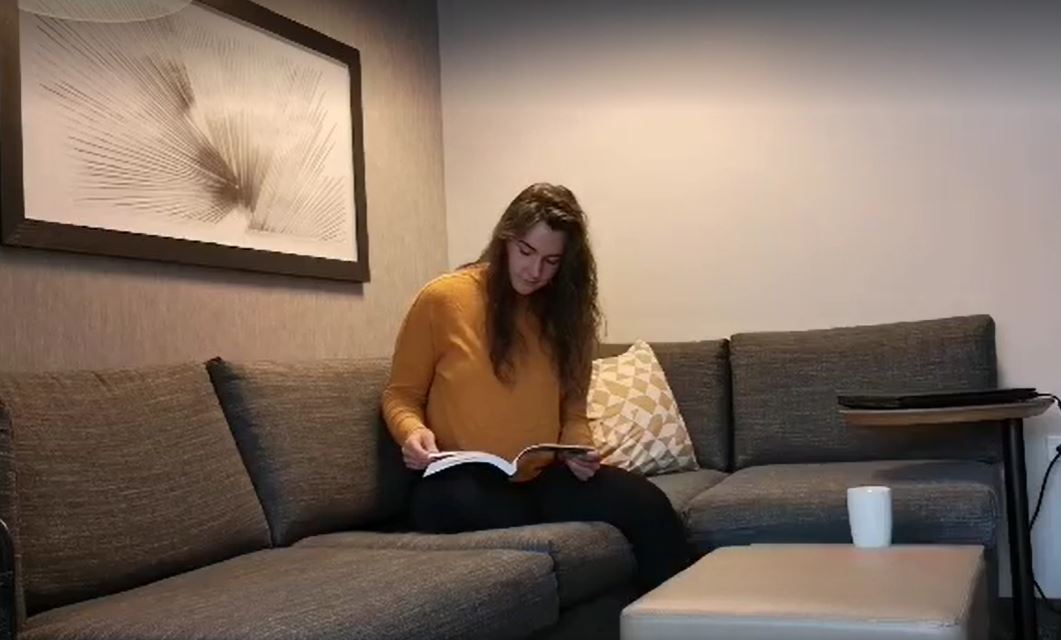Like most travellers, Rachel McAdam is spending her first week back in New Brunswick alone in a hotel room.

She landed in Moncton Monday night, checked into one of the designated isolation hotels and hasn’t seen much of anyone since.
“It’s been restful and peaceful,” she says.
She says she has spent most of her time in isolation so far reading and watching nature videos on YouTube.
Two days in, nature is what she’s missing most.
“Yesterday, it was really sunny and the window sill is just big enough for me to lay down on so I squished myself down on it,” she says with a laugh.
“It was actually really nice.”
The province has partnered with the Red Cross, which is facilitating check-ins and providing meals for those in isolation at designated hotels.

Get breaking National news
McAdam gets a menu card with options to choose from, and her food is left in the hallway at a time she gets to choose.
“It’s like, a little bit, in my mind, like what jail would be in like,” McAdam says.
She says no one has knocked on her door to make sure she’s actually in there – but security is on-site 24/7.
Security also watched isolators who need to take pets outside or step outside for a smoke.
McAdam says she has still been receiving daily “robocall” check-ins from Public Health, which is something that has been in place for anyone entering New Brunswick for months now.
Isolating across the street at the Crowne Plaza, Jenelle Mailett says her stay has been fine, too, all things considered.
“Me saying that also comes with the fact that I’m by myself,” says Mailett.
“I don’t have kids or pets, I work from home.”
- Queen’s University students stranded in Doha after Iran attack shuts down airspace
- Attack on Iran triggers global flight disruptions, impacts Canadian travellers
- WWE Hall of Fame ring belonging to wrestling legend recovered after stolen
- Carney calls for protection of civilians as U.S., Israel strike Iran
She says a concern she’s had has been those implicated in the province’s new isolation plan — people like taxi drivers taking travellers to the hotels, the hotel staff and security guards.
“That shouldn’t be part of a job, caring for a pandemic. Especially without being on a vaccine list,” she says.
New Brunswick has mostly stood firm in an age-based approach to vaccine rollout – save for front-line workers, those with underlying conditions or jobs requiring frequent travel.
The plan also comes at most travellers’ expense – quoted at about $200 a day for the week, which is costing many roughly $1400.
Luckily, as students, Maillet and McAdam don’t have to pay.
They’ll both be tested on Day 5 and, so long as they test negative, will be free to move onto their secondary isolation location after Day 7.
For McAdam, that means getting to see her family in person for the first time since last summer – though still from a distance.
“I’m so excited,” she says.









Comments
Want to discuss? Please read our Commenting Policy first.